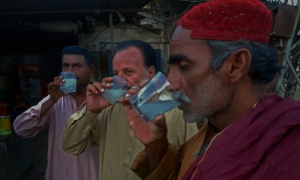Pakistan has recorded more than 611,000 cases of tuberculosis (TB) over the past two years, leading to 48,000 deaths among HIV-negative individuals and 2,100 deaths among HIV-positive individuals, according to Vice Chair of Stop TB Pakistan, Dr Sharaf Ali Shah. Unfortunately, only 55% of these cases were reported. Dr Shah attributed the low TB case notification to a lack of understanding of TB and its symptoms, insufficient knowledge about where to seek care, misconceptions about the availability of anti-TB drugs at public sector health facilities, high transportation costs, and loss of daily wages.
During a seminar held on Monday, organized by Stop TB Partnership Pakistan in collaboration with the Centres for Disease Control (CDC) and Pfizer Pakistan, Dr Afshan Isani, provincial TB adviser CDC Sindh, highlighted the risks of co-infection between HIV and TB. She stated that both diseases facilitate each other, and HIV-infected persons are at increased risk of acquiring TB, making the management of TB HIV co-infected cases more challenging. She added that the number of new HIV cases in Pakistan is increasing each year, with 30,000 new cases registered in 2022 alone.
Dr Salim Kazmi, senior technical adviser CDC, spoke about the global efforts being made to end TB, with recent developments including reducing the duration of treatment for sensitive TB in some cases to four months and for drug-resistant TB to six months.
Read More: Tuberculosis leading cause of death in Pakistan – About Pakistan
Senior adviser of Stop TB Pakistan, Dr Karam Shah, called for urgent engagement with policymakers at the district, provincial, and federal levels to promote political commitment and declare TB a health priority. He emphasized the need to allocate adequate domestic funding and use different strategies, including parliamentary caucuses and electronic, print, and social media.
Dr Shah also highlighted that, according to the latest World Health Organization (WHO) Global Tuberculosis Report 2022, the total funding available for TB in Pakistan in 2021 was $47 million, with only 8% from domestic funding and 92% from international donors (mainly through the Global Fund to Fight against AIDS, Tuberculosis, and Malaria). He raised concerns about the sustainability of TB control services in Pakistan due to the country’s over-dependence on international funding.

























